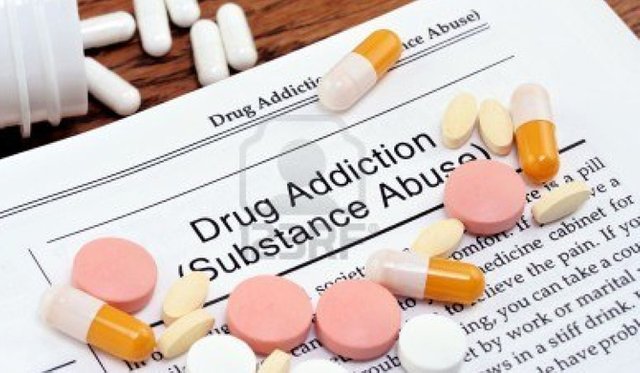High rate of Drug abuse by Teens
The high rate of drug abuse by Teens have caused a change in the pattern of their lifestyle, making them think there is a normality in their thinking but in reality their lifestyle is totally abnormal.
My research is focused on the drug abuse by Teens which has led to a high rate of delinquent behaviours.
During adolescence, life is challenging enough just dealing with fitting in and the changes that occur as you grow into an adult. CBS News reports that a recent survey indicates approximately two million teens between the ages of 12 and 17 currently need treatment for a substance abuse problem, but only about 150,000 get the help they need. This high number is largely due to the fact that it is easy for teens to access many kinds of drugs but trying anything just once can lead to drug addiction. Teens are often more experimental than adults and willing to try anything their friends are doing, making a dependency on cocaine , heroin , marijuana or another drug more likely to occur. It’s important to note that an addiction to any drug or alcohol doesn’t mean you’re a bad kid. There are several aspects to drug addiction, and even the brightest and most responsible kids can form an addiction.
HOW TEEN DRUG ADDICTIONS START
Teen drug addiction affects teens from all walks of life. This is because the factors influencing who will try drugs are the same, no matter what your family situation or social status may be. The most common reason teens try drugs is peer pressure. Friends or classmates might pressure you into trying a drug, reassuring you that they’ve tried it and aren’t addicted, so you’ll be fine too. In television and movies, teens are bombarded with images of kids like them using drugs with no negative consequences. It is portrayed as cool or harmless, and the kids who abstain are labeled as nerdy or weird. But with repeated use, that initial harmless taste can lead to a full-blown drug addiction . The fact is that every drug is dangerous and life threatening, and there is not a single drug that doesn’t hold the potential to lead to addiction.
Just because a teen is smart, does not mean that he is mature enough to have sound judgment about his decisions. According to CBS News , the part of your brain that is responsible for judgment, which is the prefrontal cortex, doesn’t fully mature until you are in your mid-20s.
CBS News also points out that while experimentation doesn’t necessarily lead to addiction, so many kids figure there’s nothing risky about trying drugs or alcohol. The reality is that even if you are dabbling in drugs, it can cause serious problems beyond addiction. These problems include overdoses, car accidents and sexual assaults. While many kids will try drugs, it should never be considered a normal rite of passage.
TEEN DRUG ADDICTION AND THE BRAIN
Drug addictions form rapidly and without warning. This is because drugs work on your brain in subtle ways. Consider how you feel when something good happens to you. That euphoric feeling – the one that washes over you when you’re praised or when your team wins a game – is your brain’s limbic system at work. Natural pleasures are necessary to our survival, so the limbic system drives you to seek out those things that are pleasurable.
The first time you try any type of drug, you usually experience unnaturally intense pleasure. This activates the reward circuitry in your brain, releasing dopamine to carry the message that whatever is causing the pleasure is good. Your brain begins to change because of the unnatural flood of neurotransmitters. The neurons sense that there is more than enough dopamine production, and so they reduce the number of dopamine receptors or make less dopamine, resulting in less dopamine signaling your brain. Some drugs can cause neurons to die. This results in the weakening of the dopamine’s ability to activate the circuits that cause pleasure. So you feel flat, depressed or lifeless without the drug to activate this circuitry. Drugs are required at this point to bring your dopamine levels back up to normal, and larger amounts will be necessary to create a high. This is called tolerance and, according to NIDA (National Institute on Drug Abuse) , it indicates drug addiction.
Although researchers know what happens to your brain if you become addicted to drugs, there is no way to predict how many times a person can use drugs before becoming addicted. This depends on many factors, so it varies from one teen to he next. Genetic makeup and environment, for example, play significant roles in how rapidly drug addiction will form.
WHAT DO DRUGS DO TO THE BRAIN?
Drugs work on your brain by tapping into its communication system. They are chemicals which can permanently alter the way nerve cells send, receive and process information. Each drug works differently because it has a different chemical structure.
Drugs like marijuana and heroin have a chemical structure that imitates the structure of the neurotransmitters in your brain. They fool receptors, and can lock into them to activate the nerve cells. What makes them dangerous is that they don’t work the same way that the natural neurotransmitters in your brain do, so they send abnormal messages through the brain.
Drugs like amphetamine can prevent the normal recycling of natural neurotransmitters or they may cause nerve cells to release unnaturally large amounts of neurotransmitters, which can lead to an exaggerated message sent to the brain. This ultimately wreaks havoc on the communication channels of your brain. The difference between natural neurotransmitter production and that caused by amphetamines is equal to a whisper versus someone screaming in your ear.
All drugs hijack the reward circuitry of your brain, causing abnormal and uncommonly large amounts of dopamine to flood your system. This may last longer than a natural release of dopamine and causes the high associated with drugs. While you may begin using drugs voluntarily, eventually the drugs alter your brain function. This impairs your ability to feel normal or to think clearly and rationally without drugs. All of this contributes to the compulsive drug use and drug-seeking behaviors that are common with teen drug addiction.
IDENTIFYING TEEN DRUG ADDICTION
During adolescence, many of the signs of drug addiction, such as mood swings or irritability, are very similar to normal teen behavior. However, NIDA states that there are questions you can ask to determine whether or not you have a drug abuse problem. While these do not conclusively indicate a drug addiction, answering “yes” to any of these questions suggest a problem is developing, and intervention may be necessary. These questions are as follows:
- Have you ever been a passenger in a car driven by someone who had consumed alcohol or drugs? Have you ever driven a car while after using drugs or drinking alcohol?
- Do you use drugs to chill out, feel good, or to fit in with your friends?
- Do you use drugs while on your own, with no one else around?
- Do you blackout or not remember things that you did while drinking or using drugs?
- Have family members or friends ever told you that you need to cut down on your drinking or drug use?
- Have you ever gotten into trouble, at school, with your family or with the law, because of drug or alcohol use?
GETTING HELP FOR TEEN DRUG ADDICTION
Dealing with a drug addiction alone is a daunting task. It’s often difficult for a teen to know where to turn, but there are a number of resources available, and teens addicted to drugs should know that they are not alone. In most communities, there is a range of drug rehab centers and programs available for teens. Most teen
drug treatment programs include group and individual therapy, and constant support and medical care.
I pray that my fellow youths in Nigeria who are high on weed and have given a retired grandpa the mantle of leader should come down low and take part in politics before this grandpa play with the destinies of our children yet unborn.
May God bless all Teens in the world.
Hi! I am a robot. I just upvoted you! I found similar content that readers might be interested in:
https://www.projectknow.com/research/teen-drug-addiction/
Thank you